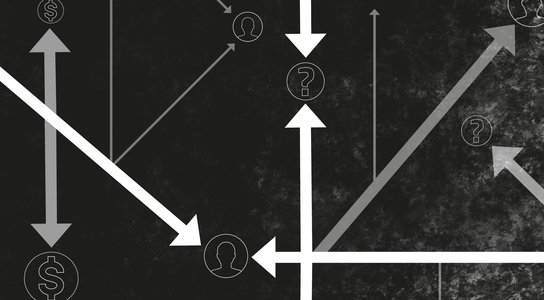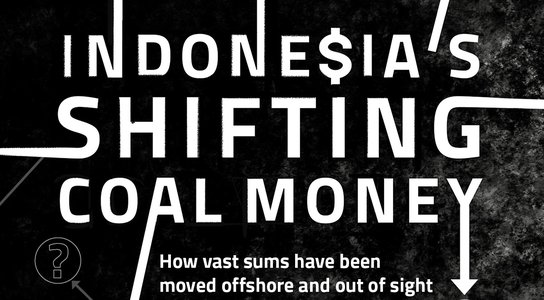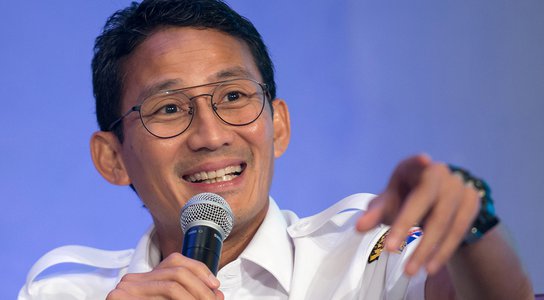Berau Coal, one of Indonesia’s largest coal companies, paid at least US$43 million between 2010 and 2012 to an obscure offshore company in the Seychelles called Velodrome Worldwide Limited.
A new report from Global Witness concludes that one of Indonesia’s best known politicians, Sandiaga Uno – who is running for Vice-President in the upcoming elections – and who with partners was a controlling owner of Berau, had a hand in these payments and may have benefited from them in some way. What’s more, these payments had serious consequences for Berau Coal and its other investors.
Read our briefing in full: Indonesia's Shifting Coal Money: Part 1 (pdf, 2410KB)
Coal is increasingly seen as a high-cost, high-risk source of energy. Its contribution to deadly air pollution and the climate crisis are well known.
But our investigation also highlights more, previously unrevealed risks, particularly for those who’ve made the already controversial choice to invest in coal, including those banks and financiers who have provided vital loans to the industry.
It shows how a major Indonesian coal company shifted vast sums of money into an obscure anonymously-owned firm, where it was hard to trace.
And it highlights the adverse consequences for other investors: these payments contributed to the weakening of Berau Coal’s financial position, with the company later defaulting on hundreds of millions US dollars of its debts.
With a new raft of coal-fired power stations planned in
Indonesia, requiring billions of dollars in financing, our findings offer
another potent reason why the Indonesian government, international banks and
investors should shun Indonesia’s Big Coal.
Key findings of our investigation
Questionable
Payments from Berau to Velodrome
In December 2009, Berau Coal came under the control of a Jakarta-based investment company, Recapital Advisers, which was co-founded and jointly owned by then-businessman Sandiaga Uno.
Shortly afterwards, the coal giant entered into an agreement with an otherwise unknown company by the name of Velodrome Worldwide, who would provide advice on “key strategic, business and operational aspects” for a monthly fee of US$2 million.
The payments to Velodrome were almost as big as Berau Coal’s entire monthly wage bill to its hundreds of staff. Even after Berau Coal began making huge losses, it continued its payments to Velodrome until the end of 2012.
Yet it is not clear what if any advice the company actually
provided in return for its fees. When the agreement was reviewed in 2012 by the
new controlling owners in Berau Coal, it was terminated “based on a review of
services provided”. The company later admitted that the “value to the business”
of its contract with Velodrome was “not clear”.
Audits and an investigation also uncovered tens of millions of dollars
of questionable payments made from Berau Coal linked to Uno’s co-investor Rosan
Roeslani, including an undisclosed alleged US$3 million pay rise for Roeslani.
Money was haemorrhaging out of Berau Coal.
Sandiago
Uno’s links to Velodrome Worldwide
At first, little to nothing was known about Velodrome or its owners.
That was until 2016, when the global Offshore Leaks revealed that Sandiaga Uno had been the sole shareholder and director of Velodrome from its incorporation in October 2007 until May 2009.
Shortly
after this period, control of the company passed to Ng Soon Kai, a Singaporean
lawyer. Our investigation reveals a strong connection between Ng Soon Kai and
Uno: they are long-time business associates and Ng Soon Kai has worked for
several companies Uno has owned. Neither individual provided answers when we
questioned them on their connection to Velodrome Worldwide.
Uno must have known about Berau Coal’s
decision to enter into the agreement with Velodrome in January 2010, and he was
also in a position to influence it, because he was a co-founder and shareholder
of Recapital, which controlled Berau Coal at the time.
From March 2010 until June 2013 he also sat on Berau Coal’s Board of Commissioners while his ally and co-investor Rosan Roeslani was the company’s chief executive between August 2010 and March 2013.
In the absence of a credible alternate explanation, we conclude that Uno had a hand in the payments from Berau Coal to Velodrome, and that he may have benefited from them personally in some way.
Risks
exposed
What next for Uno and Roeslani?
Neither Roeslani nor Uno seem to have suffered any negative consequences from their involvement with Berau Coal. Roeslani is currently the head of Indonesia’s Chamber of Commerce, while Uno was elected as the Deputy Governor of Indonesia’s capital Jakarta in 2017, and is running to become the country’s Vice President in the April 2019 elections.
If Uno becomes Vice President, he will be one of the most influential people in one of the world’s most populous countries.
Whichever parties form the Government after the elections in April 2019, they should investigate all the questions raised in this briefing, drastically reduce the amount of coal-fired power stations planned in the rolling ten-year electricity generation plan and create a comprehensive plan for an energy transition away from coal in Indonesia, towards renewable energy. Uno should respond to this story and provide full transparency on these payments, as a matter of public interest.
Investor
money at risk with Indonesia’s Big Coal
By the end of 2012, investors had bought US$950 million worth of Berau Coal’s bonds. All the while, the company’s finances were being drained by millions of dollars’ worth of payments which had little or no clear business value.
With a big hole in its finances and with world coal prices falling, Berau Coal could no longer afford to pay its debts and defaulted on some of its bonds. Bondholders, who had lent nearly a billion dollars to the company, were still negotiating over the repayment of these debts three years later.
One of the largest single investors, financier Nat Rothschild, walked away from the fiasco with a damaged business reputation and financial losses estimated at US$80 million.
The story of Berau Coal is a warning to banks and investors who are considering financing Indonesia’s new wave of coal-fired power stations – there is a risk your money is not safe with Big Coal.
Private and publicly-owned banks should take a good, hard look at their decisions to invest in Indonesian coal. They should exclude project finance to new coal mines and coal-fired power plants in Indonesia, and they should stop general corporate financing and advisory services to Indonesian companies who are highly dependent on coal power. And, importantly, they should limit all exposure to Indonesian companies involved in coal, creating a time bound plan to achieve this.You might also like
-
Campaign Hub Indonesia's Shifting Coal Money
We already know coal is terrible for the environment, but our investigations into the Indonesian coal industry highlight a host of other risks
-
Briefing Indonesia’s shifting coal money 2: Luhut Pandjaitan and the hidden buyers
The recent sale of a coal company by one of Indonesia’s best-known public officials has left unanswered questions which are an important matter of public interest.
-
Press release Vice-Presidential candidate Sandiaga Uno linked to payments of millions of dollars shifted out of Indonesian company into an obscure offshore firm
New report links Sandiaga Uno to payments of at least US$43million from a major Indonesian coal company, Berau Coal, into an obscure offshore firm in the Seychelles.